At times it was doubtful whether the traditional pea harvest of Suffolk and Norfolk would go ahead this year.
But against all odds – and thanks to the dogged determination of the farmers and the team behind them – spring sowing for the 2024 harvest has begun.
Farmers in the two provinces have been producing fresh peas – about 10,000 per year – for the frozen market for decades.
They continued even after their former customer, frozen food company Birds Eye, stopped sourcing peas from East Anglia in 2009.
Until the end of last year, the fresh peas – which must be frozen almost immediately after harvest – went to a factory in Oulton Broad.
But then their customer – the Belgian multinational Ardo – a global supplier of fresh frozen products – pulled the plug on its Oulton Broad activities.
“In 2023, Ardo decided to withdraw from the freeze in this country – largely because they didn’t own the factory and a lot of money had to be spent on it,” explains Anglian Pea Growers (APG) managing director Andy Beach.
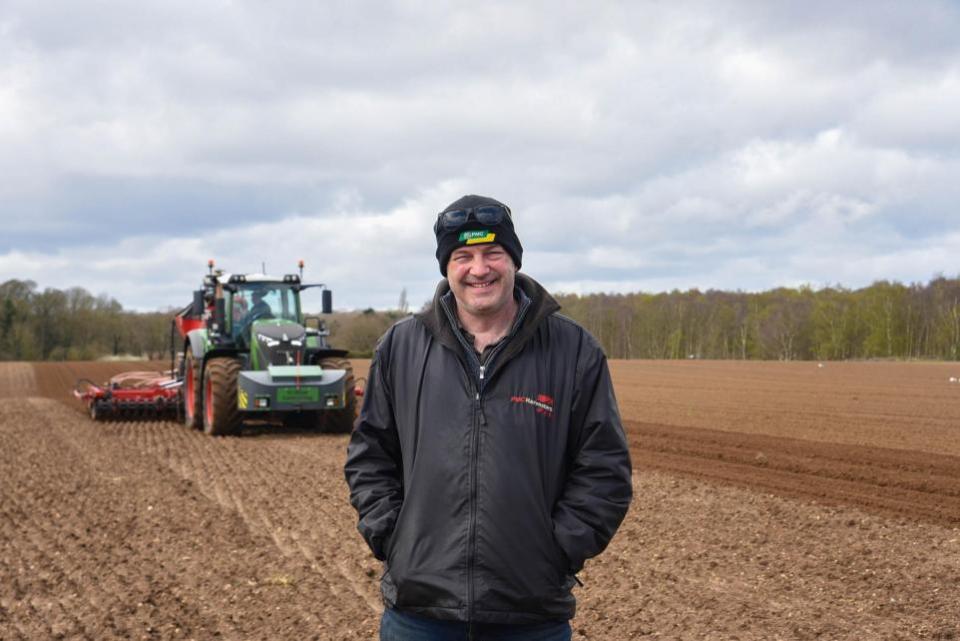
At that point, the 95 pea growers who produce the crop through the farmer-owned cooperative APG were facing a low point.
APG was working on a tripartite arrangement. It grew the crop, a logistics company called GXO froze it and a third party – Ardo – bought it to sell to consumers.
The only way to keep the crop going seemed to be to find a way to keep the outdated factory running while a customer was found to buy the peas.
The short-term works on the Oulton Broad facility were estimated at £2.5 million to keep it operational, but in the longer term an injection of £8 million was required.
GXO, as a logistics company, was not interested in continuing to operate and invest in the factory. The farmers were keen to continue and willing to invest, but the final nail in the coffin, Andy explained, was the problem of wastewater disposal.
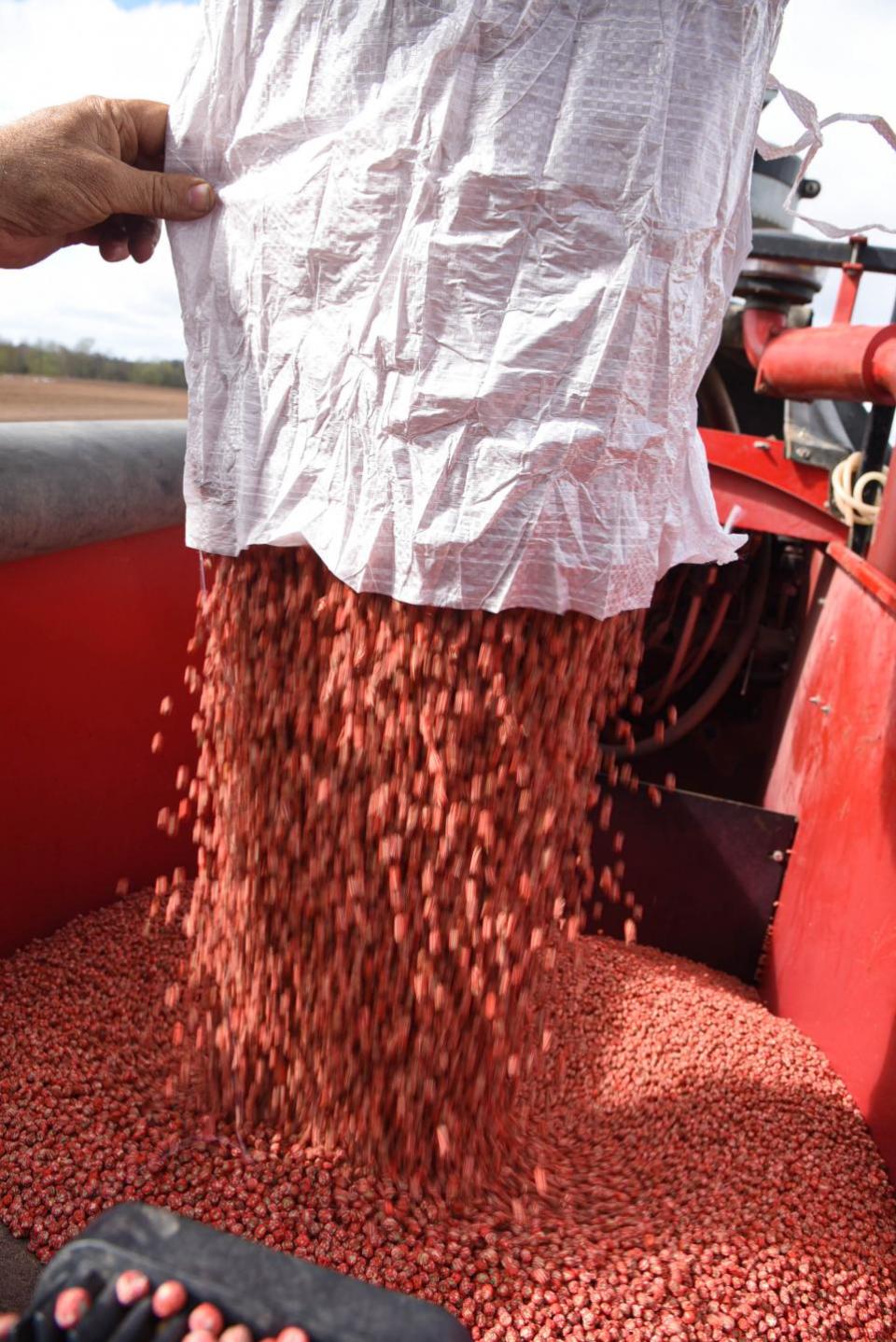

In November 2023, Anglian Water said the amount of waste sent to the treatment plant must be radically reduced from previous levels – in fact by 90%. This cut the legs under plan A – to keep the factory running.
It marked the end of the pea freezing operation in Oulton Broad/Lowestoft after more than sixty years.
“The farmers were willing to make a certain level of investment. We wanted to continue with it, but that wasn’t possible,” says Andy.
Another option was to build a new factory. Realistically, this would have cost around £20 million for an eight-week operation per year. “We as growers can’t afford that,” Andy explains.
The third option was to acquire another customer. And in the dying breath of last year, they landed one.
Greenyard Frozen UK – a pan-European company with a multi-fruit and vegetable freezing factory in King’s Lynn – stepped into the breach.
“We grow about 10,000 tonnes of peas a year. If we lost that from the market it would be quite a big gap,” says Andy.
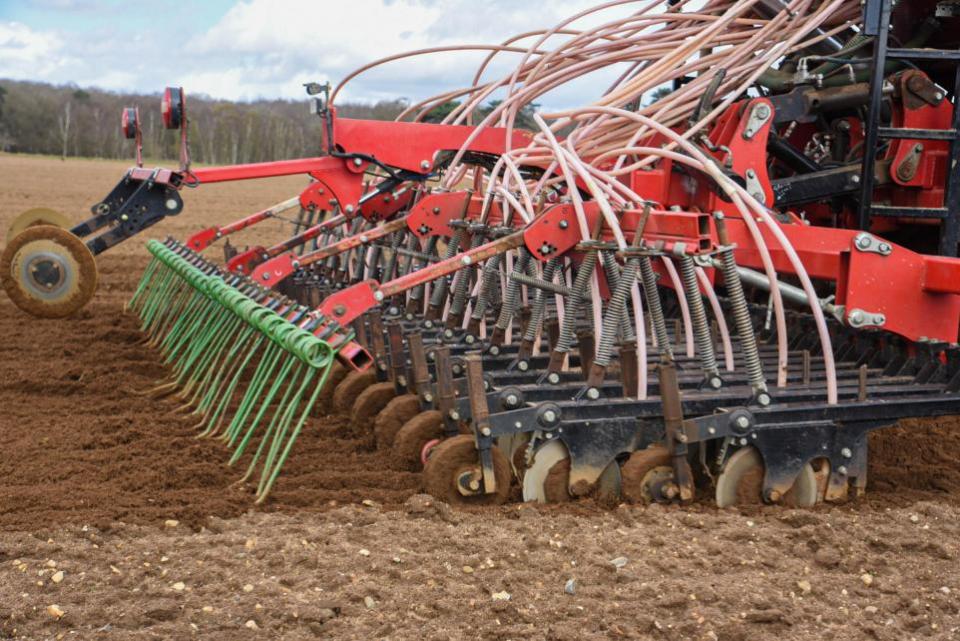

“Greenyard is very keen to source from the UK. Their business policy is focused on local sourcing. They really want to reduce food miles and the carbon footprint of their products.”
It was the break they needed, and they took it. Months of painstaking efforts followed to find a solution.
In December 2023, APG signed a deal with Greenyard and the 2024 harvest was saved.
“We heard we had lost our contract with Ardo in February last year – before the 2023 season had even started,” explains Andy.
There was a real danger that APG would cease to exist. Farmers could return to other crops, but the pea crop would have been lost.
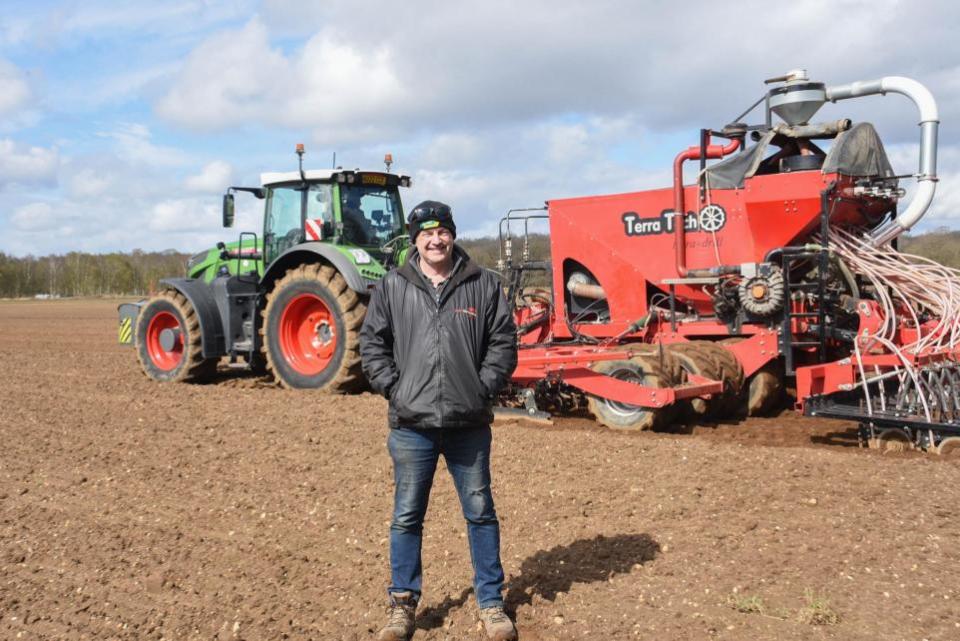

“The whole season until the end of last year, up to the point where we signed a contract with Greenyard, there was ten months of uncertainty,” said Andy.
But he and the members of the board made great efforts to find a solution – while keeping the 2023 pea harvest on track for APG’s £4m turnover.
Andy reports to the board, which is chaired by former chairman Richard Hirst of Ormesby St Margaret in Caister, near Great Yarmouth, who has been in post since 1999/2000.
“We worked incredibly hard and had a lot of meetings,” Andy said.
APG’s full-time team consists of only three permanent employees, but a maximum of twenty people work on a seasonal basis.
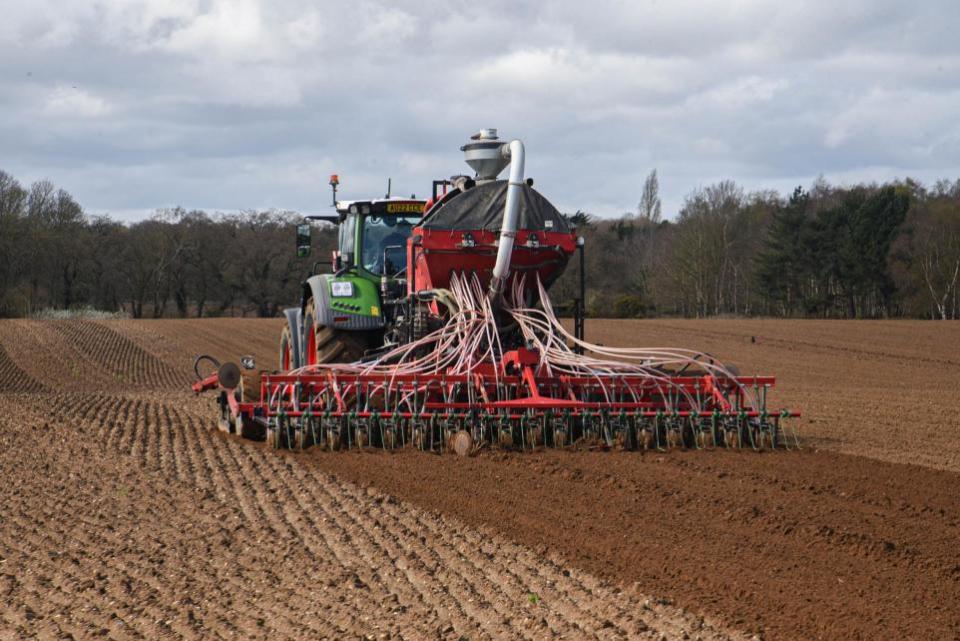

The team sows some of the farmers’ peas, but not all. About two-thirds drill themselves, as APG only has one special drilling machine.
However, Pea Harvest has four pea harvesters, who work intensively and against the clock during the pea harvest season, which usually begins around the third week of June and continues until mid-August.
To avoid spoilage, the peas must be harvested at exactly the right time and frozen within four hours.
It is a difficult operation and requires military precision and timing to get it right.
“The only way a pea crop works is if it is centrally controlled,” says Andy. “In this job we cram a year’s work into six months.”
Rain has delayed pea drilling this year by a fortnight, but this weekend the team hopes to make up for lost time as the weather changes.
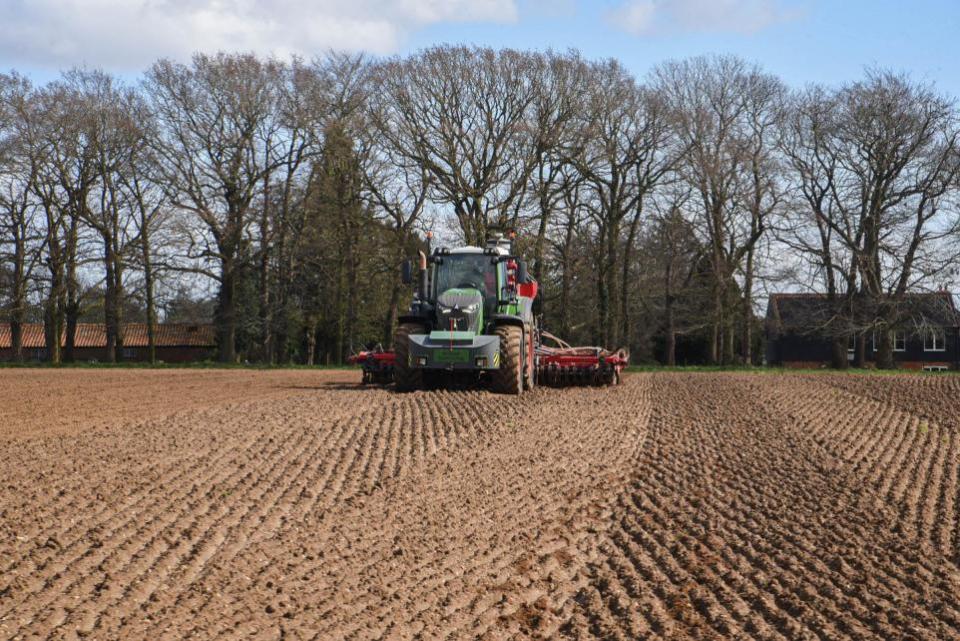

Last year was a bad year for many crops, and the pea crop suffered from a disastrous spring season.
The harvest has a short window and the cold, wet establishment period negatively affected yields (which were half of what they could have been), making it a loss-making year overall.
“It was the worst season I’ve ever had and I’ve been peas for 20 years,” Andy said. “Fifty percent of what we do is planning and 50% is weather and you can’t do anything about the latter.
“The pea crop is extremely sensitive. It is the most sensitive crop you encounter.”
The turning point of crop maturity can occur within hours, he explained. Therefore, it is crucial to harvest it on time to avoid missing quality.
The crop is grown on farms from Ipswich in the south to Stalham on the north Norfolk coast, and Wymondham in the west, across an area of 2,000 hectares.
The aim is to produce around 5 tonnes/ha, but yields can be as low as 1 or 2 ha and as high as 10 ha.
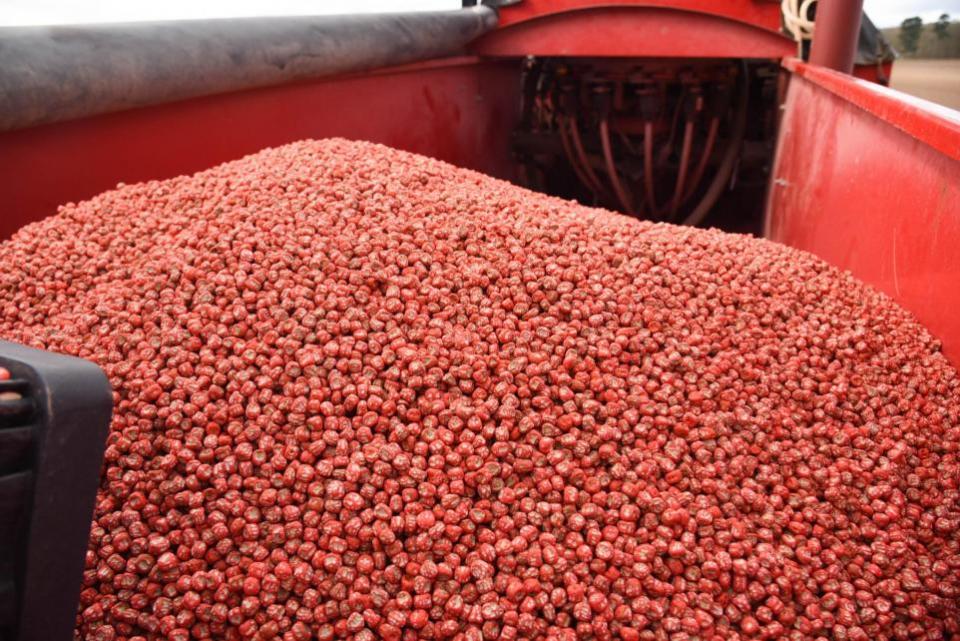

Pests can be a problem and it is a risky crop to grow, Andy admitted. Before 2023, the worst year he can remember was 2007, when it was very wet.
All 95 farmers must work as a team, he said, and the harvest and the different varieties are carefully matched. What matters is the group performance, he said.
“The individuals have to work as a group, that’s the mentality you have to have.
“As a company, our main goal for this year is to finalize our new contract with Greenyard. We are all very excited about the contract and hope for a reasonable year.”